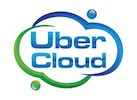Over the past 5 years companies have been waking up to a new reality. The cloud computing revolution has been supercharging one workload after the next. Finally, after a long wait, High Performance Computing is now ready for your use in the cloud. And when combined with that other mega trend - the rise of machine learning - this portends a revolution in product development.
To illustrate why cloud is a true source of competitive differentiation, lets look at a small but illustrative example...
In early 2017 Microsoft rolled out a machine type called the H16r. This instance was very modern at the time and became the workhorse HPC server type. The H16r featured 16 cores, 112GB of RAM and 40 Gbps FDR InfiniBand. This last capability meant we could build HPC clusters by stacking H16rs, leading to many happy customers.
Fast forward a mere 18 months, Microsoft announced a refresh to this line of hardware.
The nodes now feature 60 cores, 240GB of RAM and 100Gbps EDR InfiniBand. And the best part? The price is nearly the same as the old node.
This is the real reason that makes the cloud exciting, and inevitable for HPC.
Cloud delivers cost savings and efficiencies which are nice to have. But the reason companies are adopting the cloud is because suddenly it is a competitive advantage. And conversely, using your company's precious resources on buying and managing aging hardware is a disadvantage.
The cloud is now able to deliver capabilities that we could only dream of 5 years ago. And traditional barriers that held back talented designers are being taken down one at a time. At UberCloud, we routinely spin up hundreds of cores to power our customer workloads in minutes. InfiniBand - check. GPUS - check. Parallel filesystem - check.
All of this will enable a new breed of analyst. This analyst will bring their years of knowledge and experience to the table. Add to that the extreme scale and flexibility that cloud computing provides and you have a powerful combo that is only limited by the imagination of the analyst. Finally, when you add Machine Learning to automate best practices, this completes an integrated system is faster, more robust, and more economical than anything we've ever seen.


